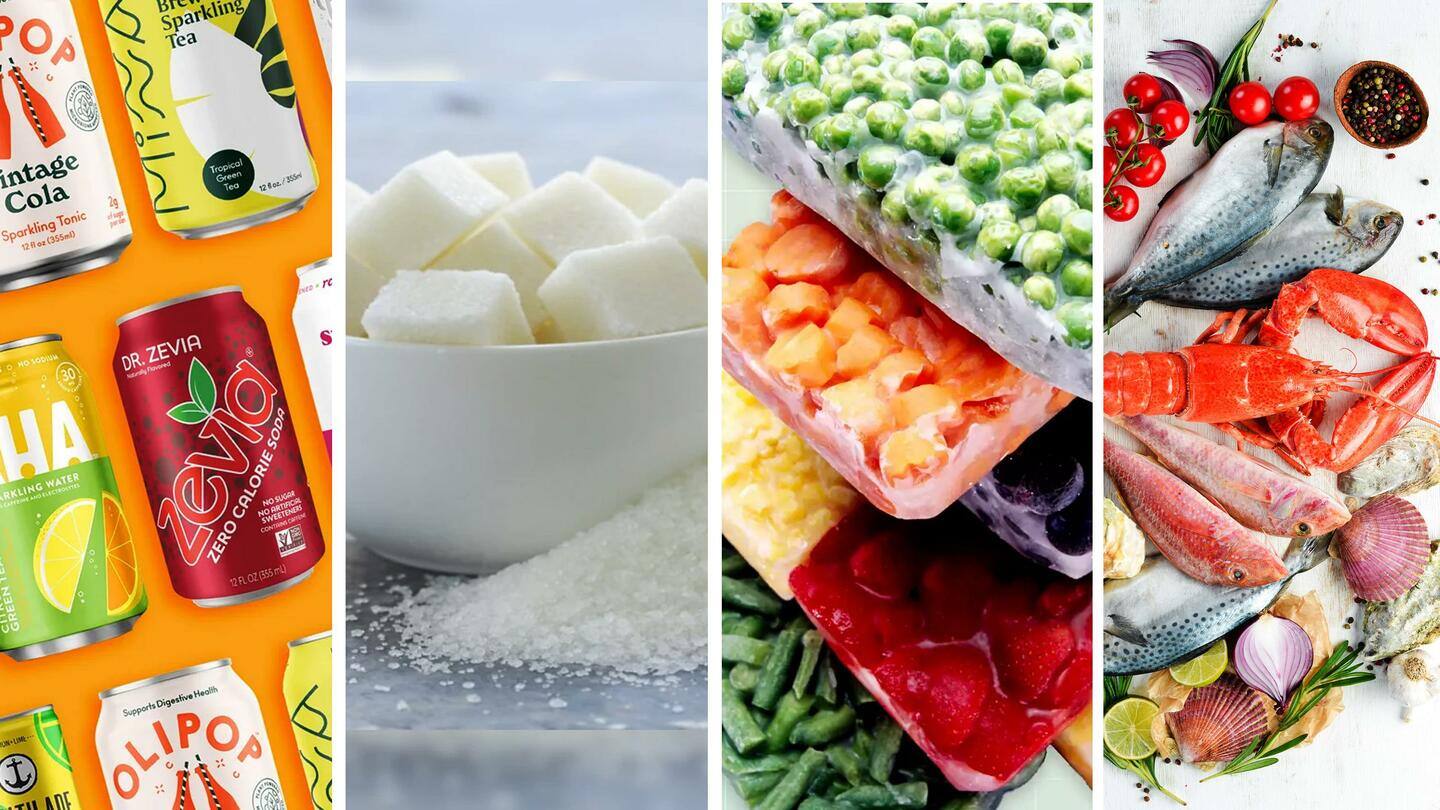
Avoid these foods if your child has ADHD
What's the story
Doctors have found that certain food items can worsen the symptoms of attention deficit hyperactivity disorder (ADHD).
While it is a known fact that what we eat impacts our physical and mental health, some foods impact our attention, focus, and hyperactivity in particular.
Read on to know what food items children should avoid if they have ADHD.
Caffeine
Sodas and caffeinated energy drinks
These drinks with little-to-no nutritional value have large amounts of fructose in them. They also contain artificial colors, caffeine, and other stimulants. Studies have found that excessive amounts of sugar and caffeine can trigger hyperactivity and inattention in children, both with or without ADHD. These drinks rank high on the list of things that cause teens to exhibit ADHD symptoms.
Mercury
Fish and seafood containing traces of mercury
Eating fish and other seafood having mercury can trigger ADHD symptoms. Mercury can leave a long-lasting effect as it is extremely hard to digest and can accumulate in the brain over time. As a result, it can lead to neurological changes: inattention and hyperactivity. Sharks, king mackerel, swordfish, and tilefish are some of the worst antagonists to ADHD.
Fructose
Processed and artificial sugar
Your child might love cakes, candies, and other sweetened products, but keep these food items away from them. Processed sugar and artificial sweeteners have properties that may trigger inflammation. Though there isn't enough evidence for it, keeping them away from your children is the best possible solution. Frosting and cake mixed together can increase the risk of ADHD symptoms more than natural sweeteners.
Salicylate
Apples and other salicylates
An apple a day won't keep doctors away if your kid has ADHD. Apples contain salicylate, a plant-based chemical that is commonly used in aspirin or other pain-relieving medicines. Salicylates too have been found to affect brain functions and trigger hyperactivity or inattentiveness. This chemical is also found in fruits like grapes, cranberries, tomatoes, strawberries, and even almonds.
Preservatives
Frozen fruits and veggies
While fresh fruits and vegetables are good for one's health, frozen ones come with food dyes and preservatives. Studies have shown that artificial colors, flavors, and preservatives like sodium benzoate can trigger hyperactivity in some children. Other preservatives like butylated hydroxytoluene, sodium nitrate, butylated hydroxyanisole, and start-butyl hydroquinone too are harmful to children with ADHD. Always check the label before purchasing frozen food.